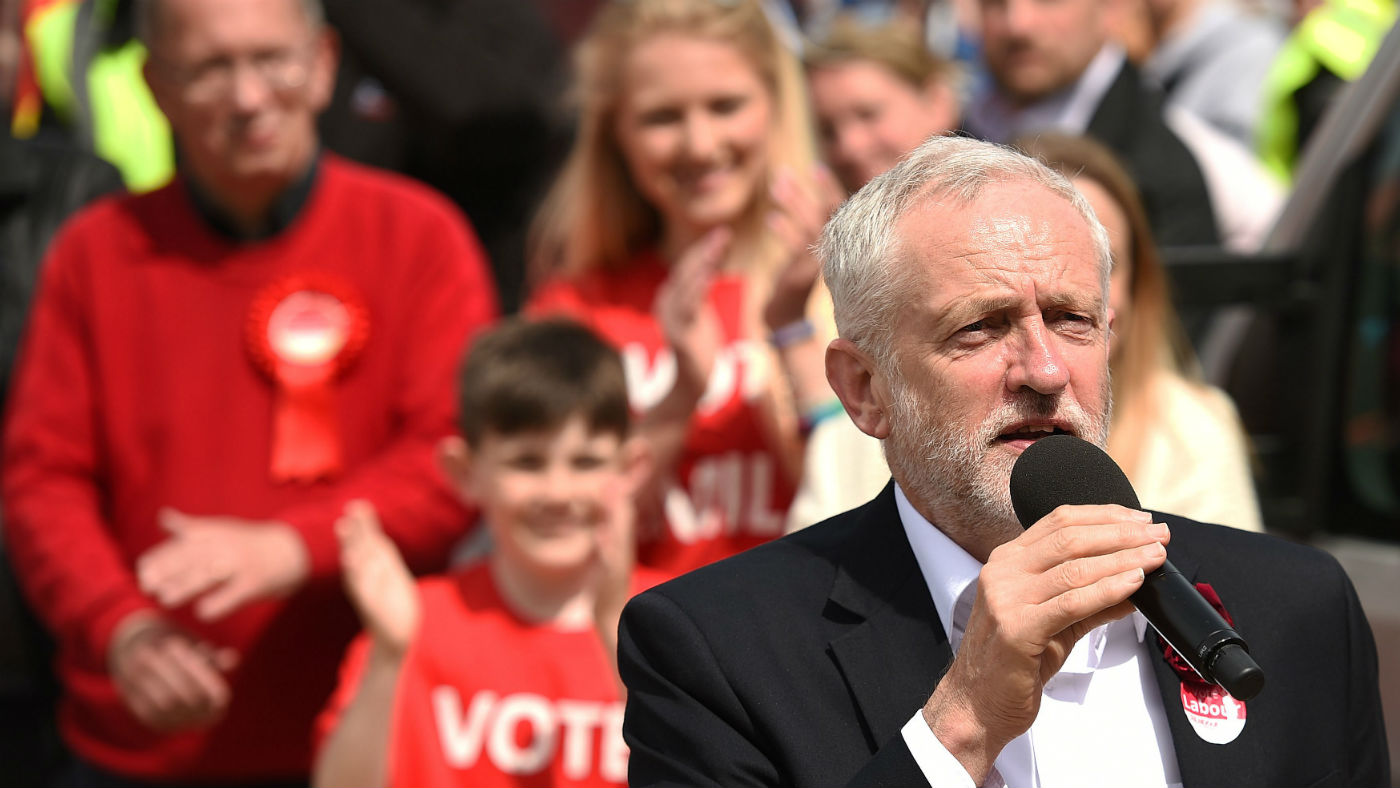Jeremy Corbyn unveils Labour’s ‘radical’ plans for the BBC
Opposition leader announces sweeping proposals to reform UK media industry

A free daily email with the biggest news stories of the day – and the best features from TheWeek.com
You are now subscribed
Your newsletter sign-up was successful
Labour leader Jeremy Corbyn has proposed subsidising the BBC licence fee through a new tax on big technology firms such as Facebook, Google and Netflix, one of a wide range of measures to reform the UK media industry.
Delivering the Alternative MacTaggart lecture at the Edinburgh Television Festival, Corbyn also called for reform of the BBC itself, with licence fee-payers electing board representatives and a requirement for the corporation to publish data about the social classes of its staff.

Corbyn strongly criticised large tech companies that “extract huge wealth from our shared digital space”, describing them as “digital monopolies that profit from every search, share and like we make”.
The Week
Escape your echo chamber. Get the facts behind the news, plus analysis from multiple perspectives.

Sign up for The Week's Free Newsletters
From our morning news briefing to a weekly Good News Newsletter, get the best of The Week delivered directly to your inbox.
From our morning news briefing to a weekly Good News Newsletter, get the best of The Week delivered directly to your inbox.
He suggested that a new tax on such businesses could be used to provide a guaranteed income for the BBC and enable the national broadcaster “to compete far more effectively with the private multinational digital giants like Netflix, Amazon, Google and Facebook”.
After the speech, Corbyn rejected the notion that under his flagship policy tech companies would therefore hold undue influence over the BBC as they would partially fund it.
The Labour leader’s proposal that the corporation should also declare the “social class” of all its presenters and journalists as part of a bid to improve its diversity was also questioned, with The Spectator’s Steerpike pointing out that a similar analysis of Corbyn’s inner circle of advisors might not make happy reading for him.
Among the myriad proposals, described as “radical” by The Guardian, Corbyn suggested the British public and BBC staff could elect members of the BBC’s governing board, the organisation that is responsible for setting strategy and ensuring the corporation fulfils its mission and public purpose.
A free daily email with the biggest news stories of the day – and the best features from TheWeek.com
A future Labour government might also put the BBC on a permanent statutory footing “to end government involvement through the renewal of the broadcaster’s royal charter”, says Sky News.
Corbyn raised the prospect of charitable status for organisations that pursue not-for-profit investigative journalism, in addition to a new fund that would subsidise news outlets, using money from big tech companies.
“Google and news publishers in France and Belgium were able to agree a settlement,” he said. “If we can’t do something similar here, but on a more ambitious scale, we’ll need to look at the option of a windfall tax on the digital monopolies to create a public interest media fund.”